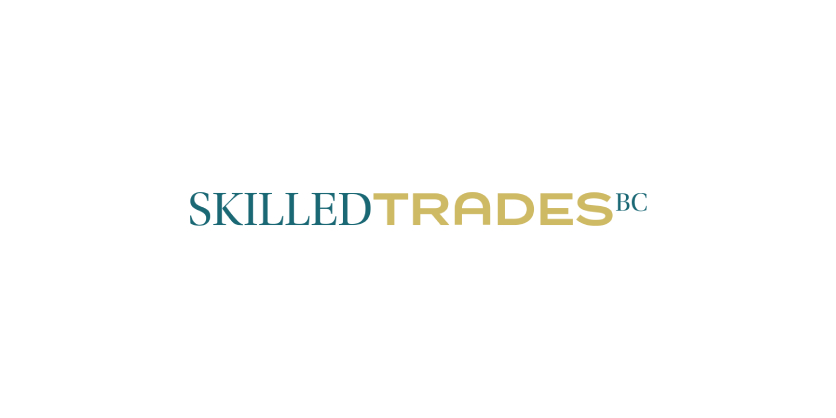Implementation of SkilledTradesBC Certification System

March 30, 2023
By Blake Marchand
B.C. announced the implementation of its new skilled trades certification system, SkilledTradesBC, in December of last year. There are three clusters of trades selected for the initial skilled trades certification in BC, electrical, mechanical, and automotive. The three electrical trades are Construction Electrician, Industrial Electrician, and Powerline Technician. You can read the announcement from last December HERE.
Workers in the electrical and mechanical are required to be a certified journeyperson or registered apprentice by December 1st, 2023. Automotive trades are going to be introduced starting in 2024. The transition period for the electrical and mechanical clusters began in December of 2022.
Workers in these seven trades that are already a certified journeyperson (including Red Seal endorsements) or a registered apprentice, nothing will change for them – they already fulfil the requirements of being certified. The first seven were selected because of the amount of regulation that is already in place for those trades and the relatively low number of people that would be unregistered or uncertified.
This article lays out the implications for employers and the steps uncertified workers can take to become certified with SkilledTradesBC.
85,000 skilled trades opportunities are expected in the next decade and there is a lag in the number of people available for those positions. Which is one of the main reasons BC is going back to an official certification body after about 20 years without one, and why other provinces have revamped their systems. Demand for skilled workers is only going to grow as workers retire and infrastructure investments, electrification, housing developments increase the demand for labour.
“It is a critical time in our economy and our country in terms of the labour force not meeting expectations,” noted Rod Bianchini, SkilledTradesBC, Chief Strategy & Compliance Officer. as part of a webinar hosted ICBA on the implementation of B.C’s new skilled trades certification system.

“We want to attract and retain people from all walks of life to work in the skilled trades, so we want to diversify and really approach trade from an equity, diversity, and inclusion point of view,” he said.
The goal of this approach is to increase the value of skilled trades and promote certification to help meet labour demands, “providing more prestige around the certification but also providing some structure around the training that will eventually conclude in certification. And that will make us, as a province, better,” said Bianchini.
Up until this point, B.C. was the only province without a compulsory skilled trades credential system.
The four key policy areas SkilledTradesBC focused on as part of this process, which included public feedback engagement, is exemptions, temporary authorizations, journeyperson to apprentice ratios, and scope of work. The feedback they received as part of that engagement process had a major influence on the final policy frameworks.
The aforementioned transition period from December 2022 to December 2023, Bianchini explained, is meant to “allow workers not yet registered to get certified through either a level challenger or trade qualifier pathway or to become registered apprentices. More importantly it will allow for business to get prepared for registering apprentices and making any adjustments necessary but also to engage with us on what the potential requirements might be after December 1st, 2023.”
If you are an unregistered worker working in one of the skilled trades there’s a couple options, you could be a prospective apprentice, which means you’ve completed less than one year of work. In that instance you can work with your employer to become a registered apprentice.
The other option for unregistered workers is what’s called a ‘level challenger’. The level challenger policy aims to recognize the experience of unregistered workers and guide them toward certification. Unregistered workers can take an exam that classifies their knowledge level and slots them into the appropriate apprentice level.
“We know there are people out there that have extensive experience, some experience, some extreme experience,” said Bianchini. Skilled Trades BC wants to treat that experience fairly, because ultimately, it’s a mutually beneficial circumstance. BC needs to boost skilled trades certification and certification for workers can lead to better paying jobs.
“We have built a robust level slotting exam system that you will be able to slot into a level through a standard level exam,” he explained.
There is also a self-assessment form that gives an individual the opportunity to test their experience based on the actual competencies of each level. The level challenger aims to slot workers into the most appropriate level for their skillset in terms of where they fit into a four-year apprenticeship.
For a level one challenger you must prove 1,800 hours of workplace training, roughly one year; level two is 3,600 hours, level three is 5,400.
For the self-assessment process, if you score 65% or higher, you are likely ready for the selected level you have challenged.
“This is an important change for us that I think is going to help the system,” Bianchini noted.
There is also a category for experienced workers that are uncertified. If you have over 9,000 hours (roughly 5-6 years in their trade) of experience, you may be able to go straight to the interprovincial exam for skilled trades certification.
There is also a mechanism for people who have over 36,000 hours of verifiable experience, who may not be interested in going back to school and becoming an apprentice but provide a lot of value to their employer. Those that qualify can get a temporary authorization and get a five-year exemption to work in their trade. Under this you can also supervise apprentices. This is for workers that may be towards the end of their careers but want to continue working.
SkilledTradesBC Employer Perspective
Formal skilled trades certification can help attract people to the trades and helps build a strong workforce.
Scope of trade is something Skilled Trades BC is trying to promote with employers. Scope of trade refers to the general trade activities carried out by workers. It is aligned with Red Seal definitions of trades.
Apprentice Supervision Ratios
An important aspect of the new regulation employers will want to be aware of is the supervision ratio.
For the electrical and mechanical trades, it is currently set at two apprentices to one journeyperson.
One of the things they took away from their industry consultation was the need to be able to modify ratios under certain circumstances. For example, level four apprentices are not included in the ratio. They are on their way to becoming certified, have more responsibility on the jobsite and don’t require the same supervision. Workers with a trade qualifier under a temporary authorization issued by SkilledTradesBC are not included in the ratio. A person participating in an industry program that includes work experience will not be included in the ratio, that includes youth programs/grade 12 students.
Journeypersons that are business owners are included in the supervision ratio as well as the previously mentioned long-term experienced workers under a temporary authorization, they can supervise apprentices.
SkilledTradesBC wants to work with people in the trades to help them navigate the new rules, which includes providing support to get uncertified workers certified, as well as supporting people that may have barriers to certification. Don’t hesitate to reach out to a representative if you are unsure of any details.
The presentation also touched on supports for women and underrepresented groups in the trades.
Approximately 5% of the trades are made up of women, “we’re taking strides to change that directly and indirectly,” said Craig Woods, SkilledTradesBC External Relations Advisor.
“One of the things we do is we start to look more closely at how many women are entering the trades and seeing how we can improve that.”
There are a couple programs, the BC Centre for Women in the Trades (BCCWITT) have a Regional Representative Program aims to increase the number women and people from underrepresented groups in leadership positions. Their Be More than a Bystander program is about educating men to create the space to support women entering the trades and help develop a systemic shift in workplace culture.
Beyond that, the federal government announced funding to for employers to take on apprentices that are women or people from underrepresented groups. You can find the organizations distributing that funding HERE. Small and medium sized businesses can receive up to $5,000 for taking on a first-year apprentice and up to $10,000 for taking on apprentices from equity deserving groups. For a maximum of two apprentices per year.






![Guide to the Canadian Electrical Code, Part 1[i], 26th Edition– A Road Map: Section 56](https://electricalindustry.ca/wp-content/uploads/2022/11/Guide-CE-Code-2-768x432.png)



![Guide to the Canadian Electrical Code, Part 1[i], 26th Edition– A Road Map: Section 56](https://electricalindustry.ca/wp-content/uploads/2022/11/Guide-CE-Code-2.png)



